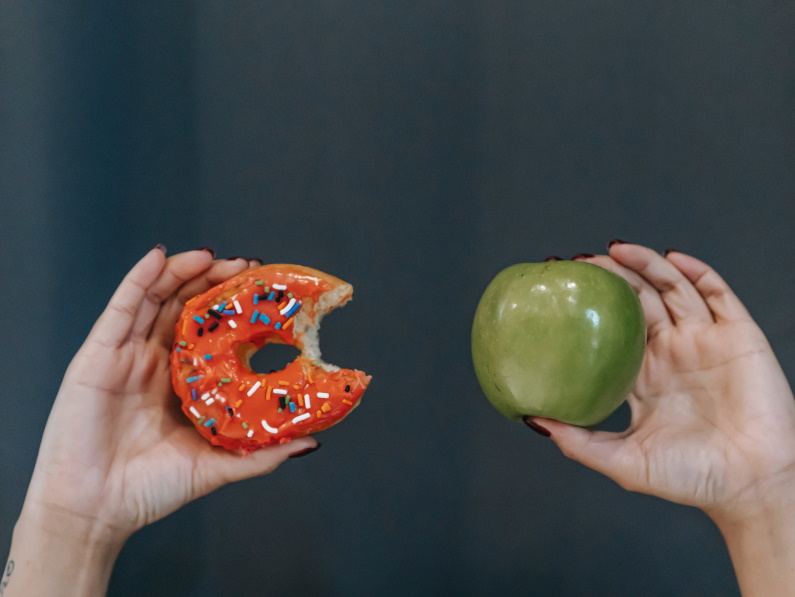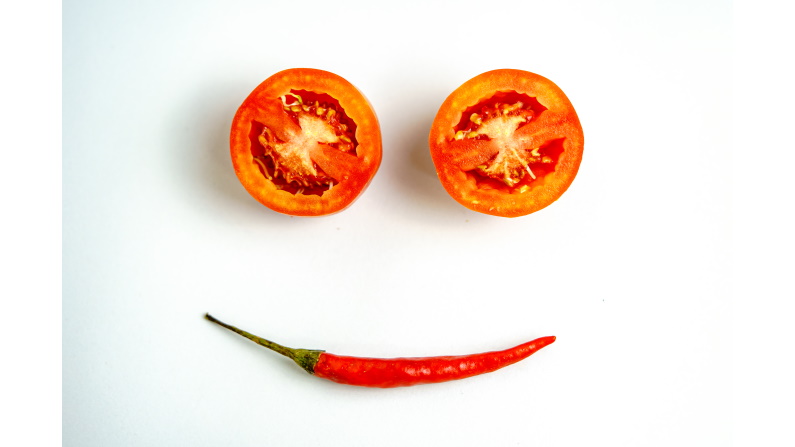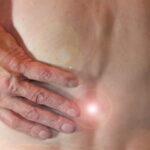Everyone loves food, but many people are unaware of how diet affects mood. There are significant, emotional impracts that different nutritional habits can have on the body. It is typical that the food we consume on a daily basis is unhealthy. Nearly 60% of what Americans eat is ultra-processed foods like cereal, coffee, and fried foods. What is not so obvious though, is that this leads to people allowing their mood to control their diet. For example, a stressed student studying for exams may develop unhealthy eating habits. And oftentimes, people don’t realize their mistake until they finish their snack/meal. Ultimately, they end up regretting it. Knowing how your diet can affect your mood—and your everyday life—can be impactful in a positive way.

Different Ways That Diet Affects Mood
Having a good diet is a key factor in leading a healthy lifestyle. What we consume on a daily basis affects our mood, physical health, energy levels, and even our sleep. Eating healthy gives an improved ability to focus, fewer feelings of sadness and anxiety, and more energy/motivation.
Healthy food promotes bacteria that are good for the body, like lactobacillus and bifidobacteria. These aid in digestion and can even improve symptoms of type 2 diabetes. When we eat junk food, our stomachs experience inflammation, by altering the bacteria living there. When the production of good bacteria comes to a halt, this triggers our immune system to continue experiencing chronic inflammation. Some symptoms include fatigue, loss of appetite, muscle stiffness, and swelling. Increased inflammation has also been found to be linked with depression and anxiety.

Sugar is the main cause of inflammation; it also increases the number of bad bacteria, like enterobacteriaceae and clostridium. These types of bacteria can cause stress and sadness because they throw the gut microbiome out of balance. In contrast, eating healthy bacteria is correlated with feeling happier and decreased symptoms of depression and anxiety. Therefore, a healthy person with low sugar will most likely experience a decrease in mood changes throughout the day.
Each food type has its own pros and cons. For example, nutritionists have found that protein increases levels of dopamine. High levels of dopamine cause people to feel more motivated and excited, but too much protein can lead to nausea and headaches. Many problems correlated with how diet affects mood stem from just eating too much or too little of it.
What Are the Different Food Groups?
There are many different food groups, which include:
- fruits
- vegetables
- dairy
- grains
- protein
Fruits and vegetables are the most nutritional. Doctors always recommend them, as they are potassium-rich, help maintain healthy blood pressure, improve skin, and reduce the risk of heart disease. Dairy products contain calcium and B12, A, and D vitamins. These help to improve one’s mood by decreasing stress and anxiety.
Both meats and legumes, like beans, nuts, peas, and lentils, have protein and are high in potassium, iron, and magnesium. Meats and legumes increase levels of dopamine, but eating large amounts of meat can lead to heart disease and cancer.
Carbohydrates are the body and brain’s primary source of energy. The 3 main types are sugars, starches, and fibers. We call these carbohydrates simple, complex, or processed (this will depend on the food’s chemical structure). Good carbs to eat are sweet potatoes, non-starchy vegetables, fruits, oats, and brown rice. Carbs to avoid are cereal, white bread, ice-cream, candy, and baked goods. Good carbs can have a huge impact on your mental and physical health, as they can support weight loss, regulate hormones, provide sustainable energy, and support better sleep.

Some Extra Tips
Make sure you are consuming at least half a gallon of water per day. As for your meals, they should include fruits and vegetables, protein, grains, and dairy, while limiting highly processed foods. Instead of eating a bag of chips or chocolate, replace it with a protein bar or a fruit.
Try implementing these changes and see the positive changes in your mood.
For more information on how to eat better to improve your mental health, visit Eating Well for Mental Health.







